On September 14, the famous Abaza leader Mahomet Hadji-Bekirovich Kishmakhov turns 70. The WAC web information portal has prepared an essay about him for his anniversary.
Georgy Chekalov
Mahomet Hadji-Bekirovich Kishmakhov comes from an Abaza clan with Ubykh roots. Kishmakhov personally found out a lot about these roots: versatile and inquisitive in everything, he could not help but become interested in the history of his own family. Moreover, one of the many activities in his life was a scientific activity, which he devoted mainly to the study of his native people.
“Happy” surname
The Kishmakhov clan originates from the Ubykh princely clan Berzek (Berzeg). Mahomet Kishmakhov established this fact when, in the 90s of the last century, he initiated the Kishmakhov family gathering. Before gathering his relatives, Mahomet Hadji-Bekirovich thoroughly studied the history of the Kishmakhov surname and the subsequent resettlement of its carriers, established contacts with brothers from Abkhazia who bear the surname Kishmaria.
This work enthralled him so much that he then, based on his research, wrote a whole book - “The clan from the sacred valley of the Ubykhs.” Moreover, he defended his thesis, issued several more books on the history of the Ubykhs.
According to family legends that have survived to this day, when the last man of the Princes Berzekov died, his pregnant widow remained. And the prince’s friend, some kind of Khan’s son, said: “To anyone who brings me the news that Berzekov’s daughter-in-law has a son, I will present a saddled horse.” When the long-awaited son was born, this khan exclaimed in joy: “Kish maho!” - which means “May this day bring happiness!” in this national language. These words formed the family name that Kishmakhovs have been bearing with dignity for several centuries.
Mahomet Kishmakhov is proud of many of his ancestors. One of them is Batoko Yusupovich, a lieutenant colonel of the Russian army, a graduate of the Pavlovsky cadet corps. Batoko Kishmakhov participated in the Balkan (1828-1829) and Polish (1835) campaigns of the Russian troops, after conflicts between Abaza and Circassians with the Russians, he went to the headquarters of the right flank of the Caucasian line in the village of Prochny Okop, defended the interests of the mountaineers in front of the commander of the Russian troops and was killed by armed military who burst into his place at night.
Batoko Kishmakhov’s nephew Batory Aslan-Gerievich taught at the Stavropol Gymnasium and did a lot to get education from his relatives. One of his students was Hadji-Bekir Kishmakhov, the father of Mahomet.
Mahomet’s childhood
His father, Hadji-Bekir Zulkarnaevich, was born in the village of Dudarukovsky (now - the village of Psyzh - ed.) and worked there as a teacher after graduating from high school. In 1949 he was sent to the village of Kara-Pago. Mahomet was born there. He was the second child in a family with many children: Mahomet had five sisters and three brothers. The older sister and two brothers died in childhood.
He went to school in Psyzh, where the family returned in 1955, and from the fifth grade he was transferred to Cherkessk, to the regional national boarding school. He studied in the same class with the future Abaza poet Kerim Mkhtse and even shared a room with him. Mahomet himself was more attracted to the natural sciences; he was fond of radio engineering. He was also boxing and practicing national dances.
“I was going to go to the Taganrog Radio Engineering Institute after the boarding school,” says Mahomet Hadji-Bekirovich. - But Boris Sopoev intervened in these plans (Sopoev Boris Alexandrovich, Honored Artist of Russia, soloist of the “Alan” ensemble - ed.), who oversaw our school ensemble. He said that he would put me and my classmates Kakhar Yerizhev and Sultan Ediyev through the Gorsky Agricultural Institute, and we went to Ordzhonikidze (now - the city of Vladikavkaz - ed.).”
Studying, boxing and dancing
The promise to “put through” turned out to be somewhat exaggerated: young men had to break into the institute themselves, since the knowledge gained in the boarding school allowed it.
“I remember the entrance chemistry exam as today,” recalls Mahomet Hadji-Bekirovich. “The examiner was a woman, a doctor of chemical sciences, whom all students were afraid of. I took a ticket, looked at questions and volunteered to answer without preparation — the topics were familiar to me. I answered. The dean of the faculty who was present at the exam then sat down with us, became interested in who I was and where from, and after I answered additional questions, he insisted to assign me the highest grade.”
Kishmakhov continued to box and dance at the institute – and do it very successfully. In 1969, at the championship of the VSS Burevestnik (a voluntary sports society that united students and the faculty of higher educational institutions of the Soviet Union - ed.), he became a silver medalist, having fulfilled the standard of a candidate for master of sports of the USSR.
In addition, the honored folk dance ensemble “Dzhigit”, in which Mahomet performed with Kahar Yerizh and Sultan Ediev, in 1969 and 1971 became the laureate of the first and second international folk dance festivals held in Poland and Hungary.
Not all this prevented the student from studying well and mastering the profession of a scientist agronomist, the degree in which he received in 1972.
Postgraduate years: collective farm and army
According to the distribution, Mahomet went to the Stavropol Region, but there were no agronomist vacancies there, and he returned home to Psyzh. He was invited to an experimental farm, but only as a laboratory assistant with a salary of 70 rubles.
“The salary seemed little to me: there were younger sisters and a brother in my care. I said that I would think about it tomorrow, and came home,” recalls Mahomet Hadji-Bekirovich. “My father and mother said that the chairman and chief agronomist of our collective farm “Kuban” came for me and urged me to go to the office in the morning. The next day I went to them, and they accepted me as an agronomist of the second brigade with a salary of 120 rubles and handed me the greenhouse, which had previously been in the neighboring village of Sadovoy, setting a surcharge of half the salary for this. 180 rubles at that time - a good salary. I agreed”.
The Kuban collective farm was one of the best in Karachay-Cherkessia, and a young specialist with progressive knowledge found himself in his place. Soon he had to interrupt his newly begun labor activity: in 1974 he was drafted into the army.
He ended up in the Leningrad Military District, in tank troops, served as a senior sergeant as a squad leader, and later as a platoon commander. The army years, besides military everyday life, were also remembered by him because in the rare days of dismissal, he met with his fellow countryman Murat Yerzhev, the brother of his school and student friend Kakhar. (Murat Yerzhev is an actor and film director, known for his roles in the films “Russian Special Forces”, “National Security Agent”, “Gangster Petersburg 2: Lawyer” - ed.).
At party and state work
In 1977, Mahomet Hadji-Bekirovich was invited to party work. From that time until 1986, he held various posts on the party line, and then returned to work in the agricultural complex - already in a new capacity.
The fact is that during perestroika in the USSR (large-scale changes in the ideology, economic and political life of the country, initiated by the Secretary General of the Central Committee of the CPSU Mikhail Gorbachev and ended with the collapse of the USSR - ed.), The idea was put forward to unite the entire food production chain “from fields to the counter.” They began to create agricultural associations and combines everywhere for this purpose.
In 1986, Mahomet Kishmakhov was appointed chairman of the Ust-Dzhegutinsk agro-industrial association. In parallel, he held the post of first deputy chairman of the Ust-Dzhegutinsk district executive committee. The following year, he took courses in economic mechanisms and intensive technologies at the All-Russian Higher School of Management of the Agroindustrial Complex of the RSFSR State Agricultural Committee in Moscow. In 1988, the association became a department of the Karachay-Cherkess agricultural complex, and Mahomet Hadji-Bekirovich continued to head it until June 1989.
After that, he was returned to party work: first, an instructor of the regional committee of the CPSU, and five months later, the second secretary of the Prikubansk district committee. In 1990, he entered the Rostov Higher Party School and studied there for two years ... but this study ended quite unexpectedly.
“During this period there was severe criticism of the Communist Party, and, having received a diploma, I tore it up and threw it away. And no matter how much they later invited me to get a duplicate, I did not go after it,” admits Mahomet Hadji-Bekirovich.
Benefit people
Whatever position Mahomet Hadji-Bekirovich held, he always worked in good faith, he was repeatedly encouraged with letters from district and regional departments. He is an Honored Worker of the Civil Service of the KChR. However, for himself, a clear conscience and the realization that his work was beneficial to people were always much more valuable.
When the war began in Abkhazia (the Patriotic War of the people of Abkhazia 1992-1993 - ed.), Kishmakhov worked in the leadership of the Prikubansk district. He became one of the organizers of humanitarian aid to the fraternal republic and accompanied the first convoy with cargo.
“Then I was even injured - Georgian aircraft started firing at us from the sky, and a splinter hit my lower abdomen,” he recalls.
Mahomet Hadji-Bekirovich met with Vladislav Ardzinba during and after the war, and still has the coat of arms of the Republic donated by the First President of Abkhazia as a sacred relic. Moreover, the most valuable of all the awards for Kishmakhov is the medal of the Order of “Akhdz-Apsha” of the Republic of Abkhazia.
In the 2000s, he worked as a commercial director at the enterprise. Later he returned to the civil service and worked for seven years as an expert at the Office of the Federal Service for Supervision of Natural Resources Management of the KChR. He was assigned the rank of referent of the civil service of the Russian Federation, class 1.
Considering the work experience of Mahomet Kishmakhov and his authority among the Abaza, he was twice elected in 2000 and 2007 as the chairman of the “Abaza” social and political movement (now, the Abaza Public Organization - ed.).
“We then introduced a good tradition - to honor our (Abaza - ed.) famous people who have done a lot for our people and do it during their lifetime,” says Mahomet Hadji-Bekirovich about his social activities. – “The first person we honored when I was the head of a public organization was Kerim Mkhtse. He turned 50 years old in 1999, but he could not organize his creative evening. We held it in March 2001 and a month later Kerim was gone.”
While at a high public post, Mahomet Hadji-Bekirovich put a lot of effort to ensure that in Karachay-Cherkessia, when solving various issues, Abaza’s interests were taken into account.
Scientific activity
In 2004, Mahomet Kishmakhov graduated from the graduate school of Karachay-Cherkess State University and defended his thesis for the degree of candidate of historical sciences. Over 15 years of active scientific activity, he wrote more than 70 biographical articles for the Adyg (Circassian) encyclopedia, more than 40 articles for the Abkhaz biographical dictionary, the article “Abaza family” for the encyclopedia “Russian family”, published five monographs and published many articles in various scientific and socio-political publications.
As already mentioned, Kishmakhov chose the history of the Ubykh people as the main area of scientific activity.
“Exploring this topic, I visited Turkey, where I talked with the descendants of the Ubykh mahajirs. They told me many interesting things. I discovered interesting documents while working in archives in Armenia, Azerbaijan, Turkey, Moscow, Rostov and Stavropol. They formed the basis of my books “Problems of the Ethnic History and Culture of the Ubykhs,”
“Monuments of History and the Rights of the Ubykhs,” and other works,” says Mahomet Hadji-Bekirovich.
Mahomet Hadji-Bekirovich continues his scientific activity even now, being retired. Although in recent years enjoys more communication with three granddaughters, whom his son Albert and daughter Albina gave him and his wife Nina.
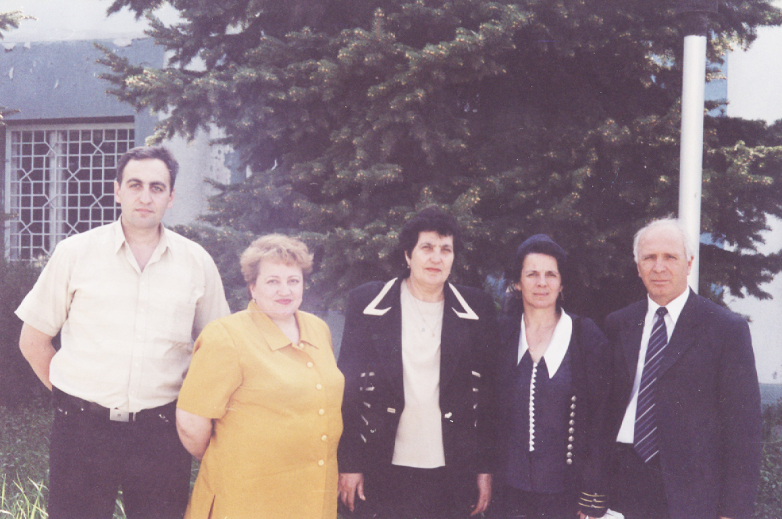
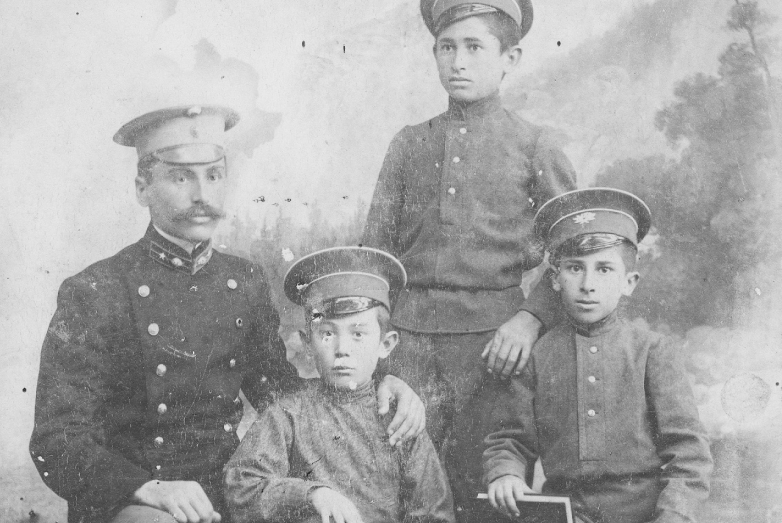
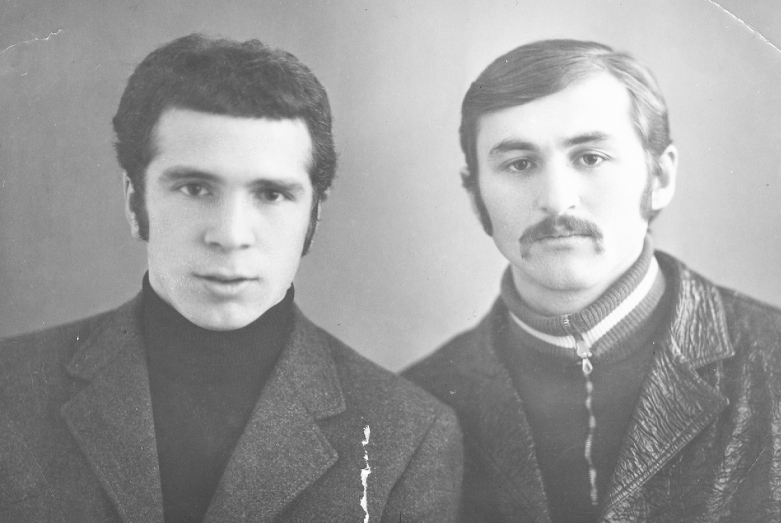
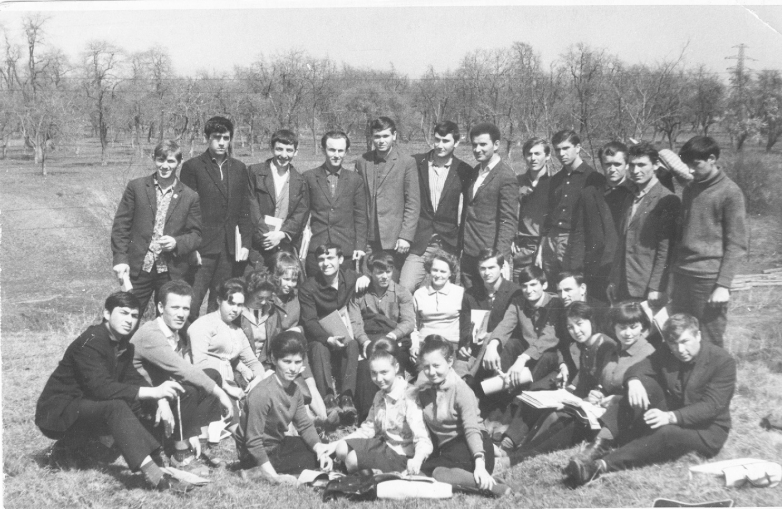
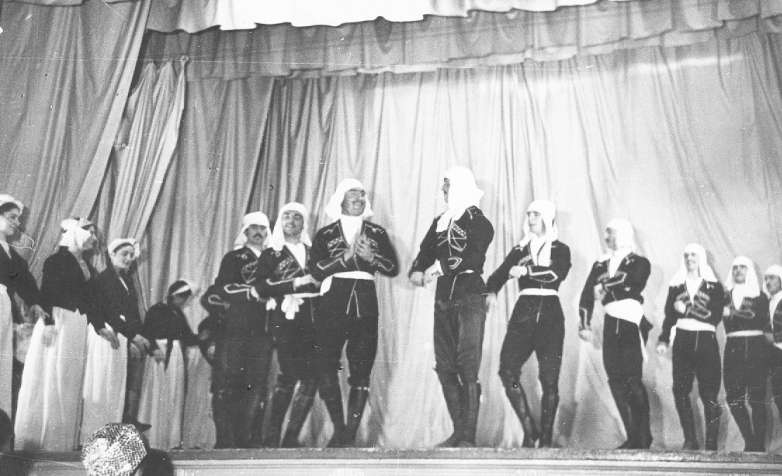
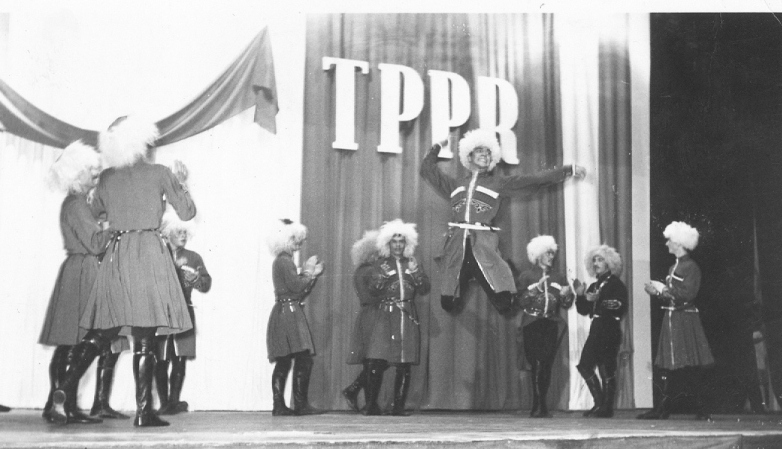
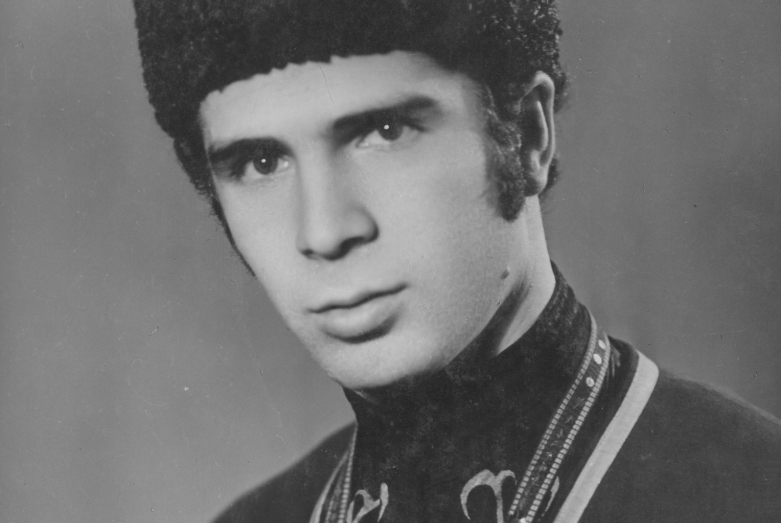
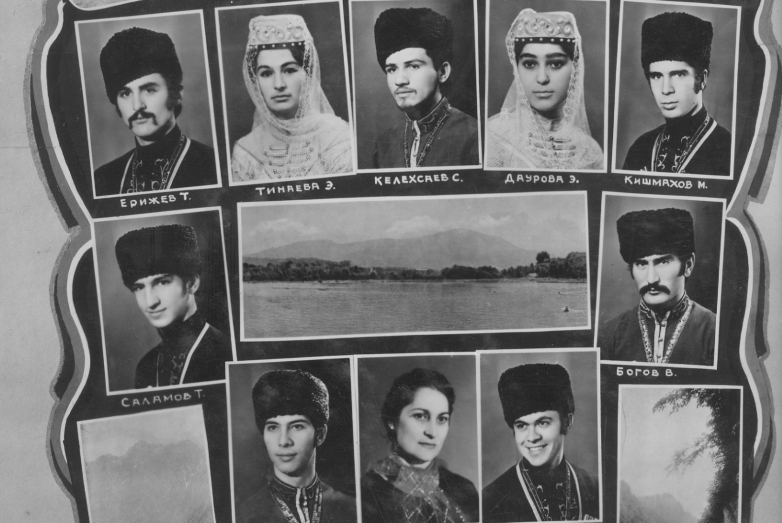
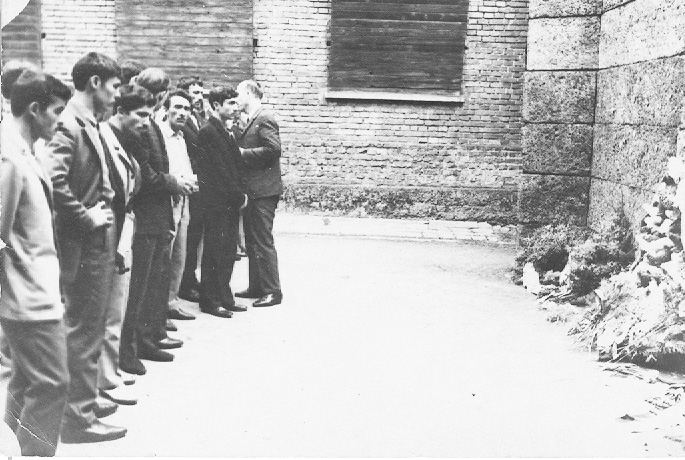
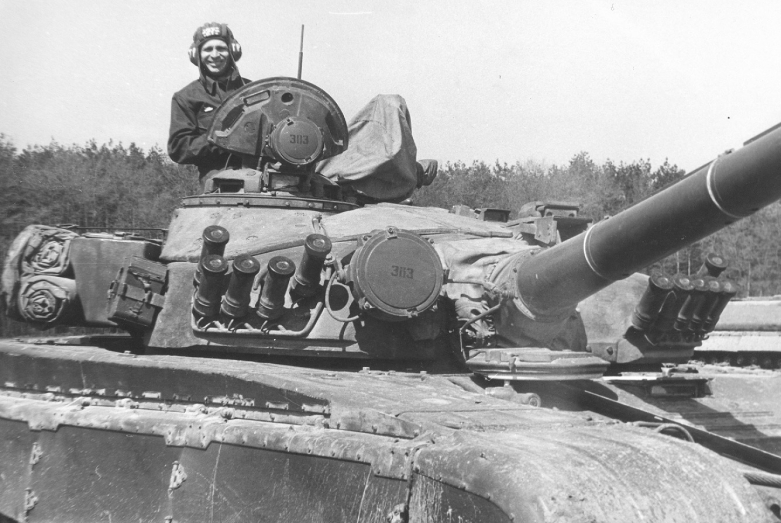
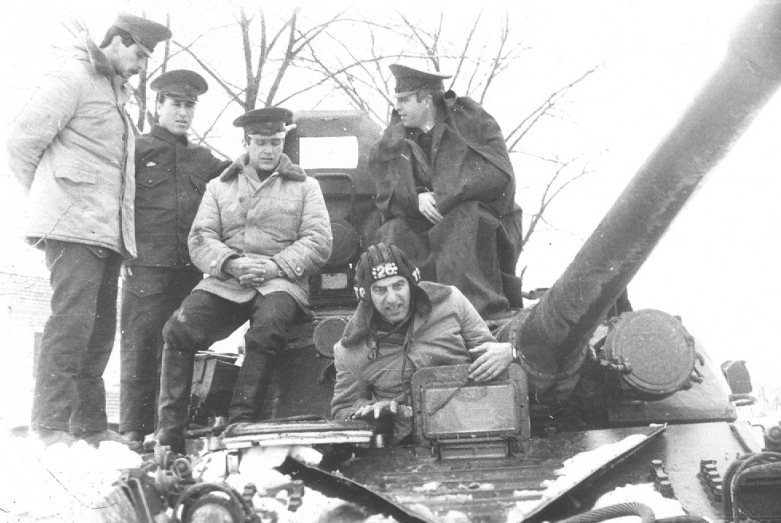
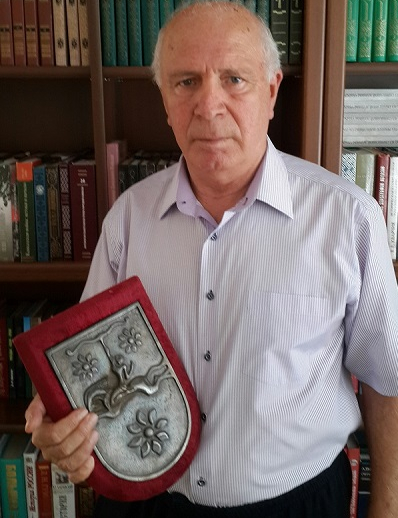
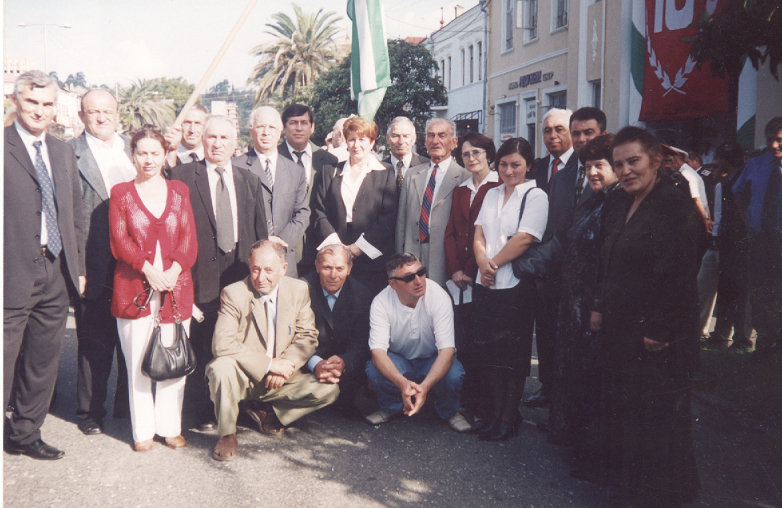
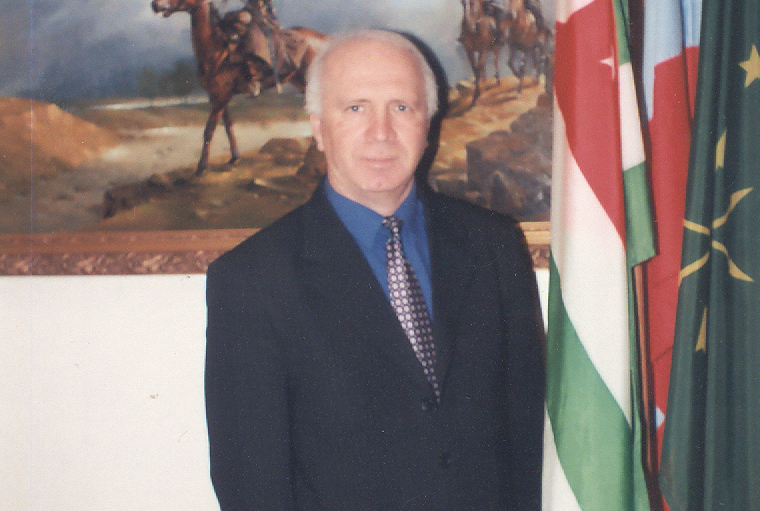
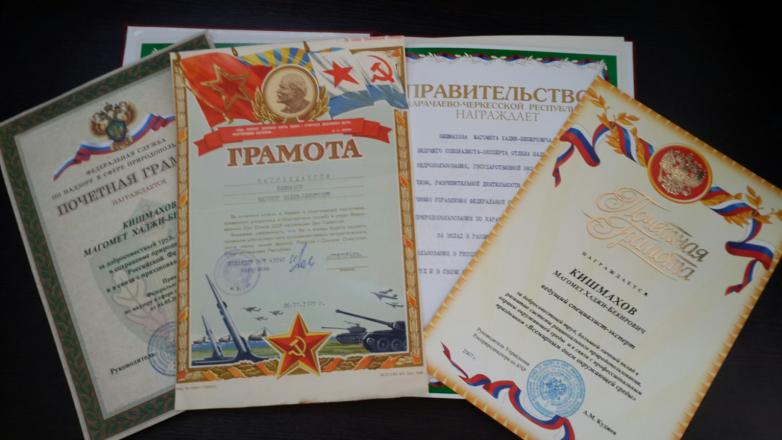
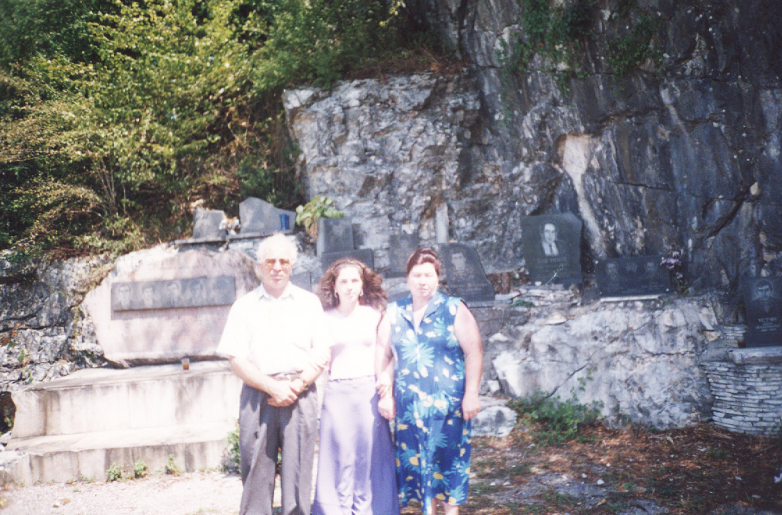
to login or register.